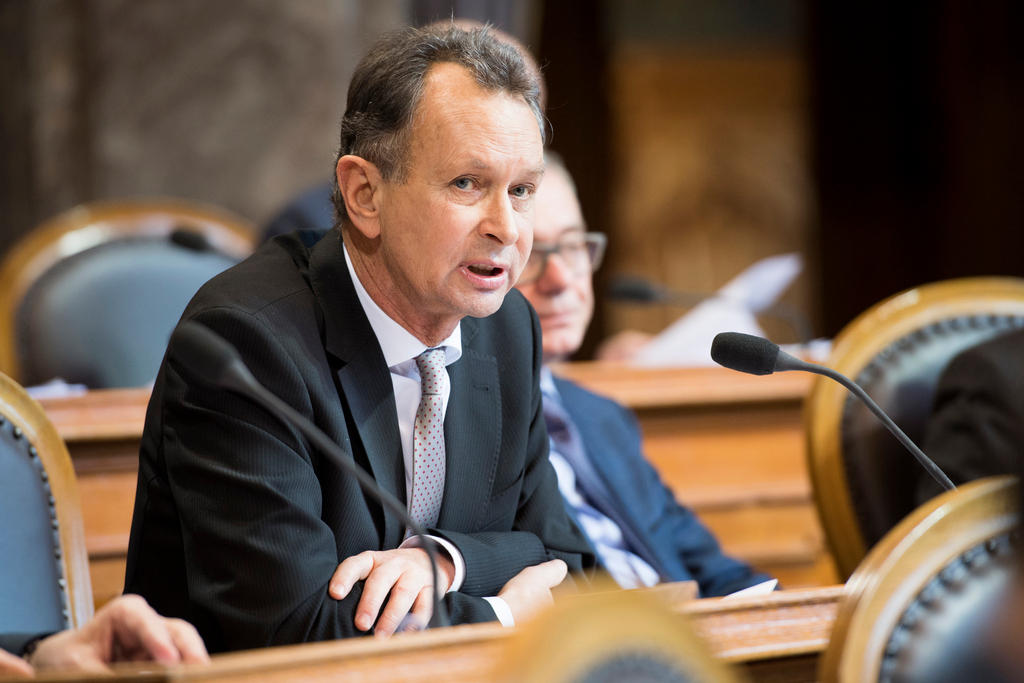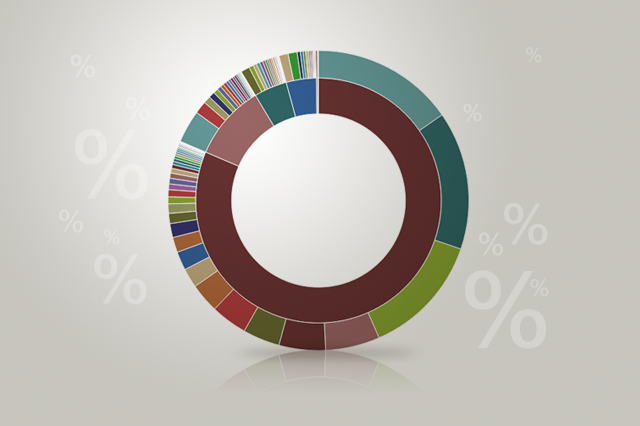
How an issue of immigration turned into one of unemployment

The implementation of the 2014 mass immigration initiative has dominated the Swiss political agenda for the past three years. The agreement reached by parliament on Monday aims to make greater use of domestic workers and curb immigration indirectly, but it bears little resemblance to the original initiative.
“If an architect gives me a design that would result in the house falling down if I follow it, I can’t carry out the job according to the plan.” This was how Philipp Müller from the centre-right Radical Party tried – during one of many heated debates – to illustrate the damage that would be caused by a literal implementation of the mass immigration initiative.
This initiative, proposed by the rightwing Swiss People’s Party and approved by 50.3% of voters on February 9, 2014, called for limits and quotas on European workers allowed into Switzerland.
Parliament then had three years to implement this – in other words, by February 9, 2017. The problem, as Brussels was quick to point out, is that curbing immigration in Switzerland would violate an agreement on the free movement of people, one of the EU’s central tenets that Switzerland signed on to in 2002 as part of a package of bilateral accords. The free movement of people treaty would therefore need to be renegotiated.
The Swiss cabinet thus found itself in the seemingly impossible position of implementing an initiative that demands limits on free movement while not jeopardising bilateral accords with the EU.
After pinballing between the Senate and the House of Representatives – five lengthy debates were held in both chambers – the issue was seemingly settled on Monday, when parliament agreed on what they hope will be an EU-compatible implementation which will control immigration, at best, indirectly.

More
Who are the two million foreigners living in Switzerland?
The new conditions should improve the job-finding chances of unemployed Swiss. More concretely, if unemployment in a certain sector or region reaches a certain level, employers must do everything to tap the local labour force, for example by advertising jobs at regional job centres, before recruiting outside Switzerland.
In addition, employers will be forced to invite job centre-approved applicants to an interview, and then inform the job centre of the result, although they wouldn’t have to explain their decision.
‘Non-solutions’
Needless to say, politicians from the People’s Party aren’t happy, frequently referring in the debates to “non-solutions”, “specious arguments”, “a blatant contradiction of the will of the people”, even of “deception” and a “piss-take”.
They tried in vain to insist on limits and quotas, but they never managed to come up with a solution that was compatible with international treaties.
Instead, they accused the Swiss government of a submissive negotiating stance towards Brussels, which, following British voters’ decision on July 23 to pull Britain out of the EU, had absolutely no time or inclination to renegotiate the free movement of people agreement with Switzerland.
Despite this, the People’s Party has said it will not resort to a referendum. The party’s president, Albert Rösti, told Swiss public television, SRF, that parliament – which was “prepared to breach the constitution” – still wouldn’t implement the initiative properly even after a referendum.
He added that should immigration continue to increase, the People’s Party would launch an initiative to terminate the free movement of people agreement.
‘Not xenophobic’
Other parties jumped into the mêlée, especially those from the Radical Party, who pushed for interventions into the labour market that would benefit local job seekers.
Philipp Müller and Radical Party colleague Kurt Fluri, for example, both said it was unacceptable – if more than 10,000 people were registered as unemployed in the construction industry and more than 17,000 in the catering industry – to import 10,000 foreign workers for these two sectors.
Müller insisted that labour market measures against developments like this had nothing to do with xenophobia but rather with protecting local workers.
The centre-right Radicals were increasingly supported by those on the political left – the Social Democrats and Greens – who also used economically liberal arguments if necessary.
Green parliamentarian Balthasar Glättli trusted that an employer would pick a Swiss job seeker who was over 50 if the employer had to look this person in the eye during an interview. Social Democrat Cédric Wermuth wondered whether his opponents actually wanted to do away with the liberal labour market.
Horizon 2020
Justice Minister Simonetta Sommaruga believes parliament, with this implementation, has saved Switzerland from terminating the bilateral treaties with the EU.
In addition, the Swiss government believes full participation in the Horizon 2020 research project, from which Switzerland was cut out after the 2014 vote, should be possible again from 2017.
One condition for this was Switzerland ratifying before February 9, 2017, a treaty granting workers from Croatia access to the Swiss labour market. This was done in April this year.
(Translated from German by Thomas Stephens)

In compliance with the JTI standards
More: SWI swissinfo.ch certified by the Journalism Trust Initiative


























You can find an overview of ongoing debates with our journalists here . Please join us!
If you want to start a conversation about a topic raised in this article or want to report factual errors, email us at english@swissinfo.ch.